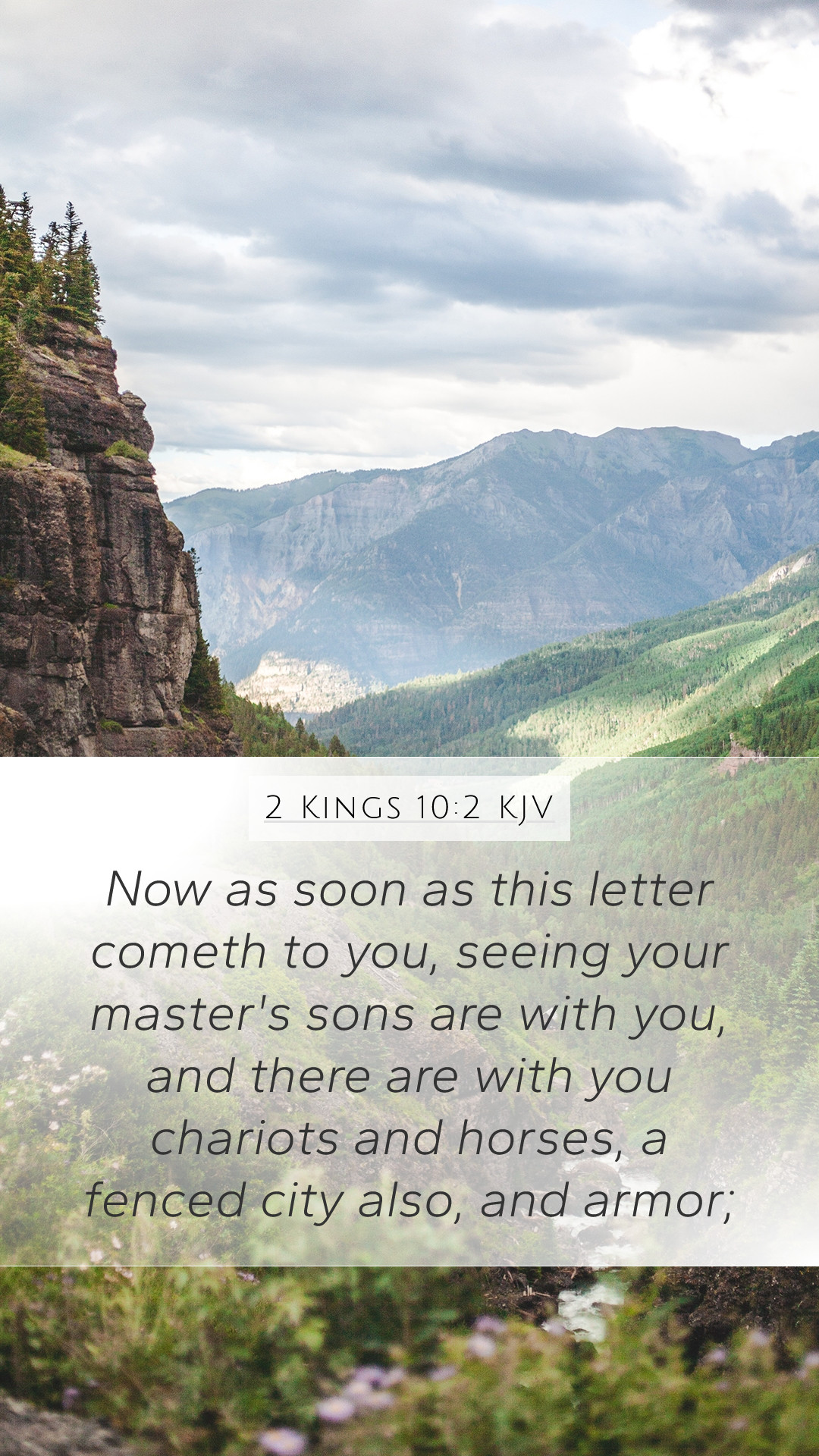Bible Verse: 2 Kings 10:2
Understanding the message of 2 Kings 10:2 can be enriched through various public domain commentaries. This verse is significant as it situates itself within the story of Jehu and the demise of the house of Ahab. It reads as follows: "Now, therefore, send and kill the servants of your master, the prophets of the Lord, and the priests, and the servants of Baal; and let their blood be shed on the altar."
Summary of Insights:
The meaning of this verse can be viewed through several lenses, combining insights from noted commentators:
-
Matthew Henry's Commentary:
Henry emphasizes the gravity of Jehu's mandate. He notes that it signifies the total eradication of idolatry, particularly the worship of Baal. This directive is a stark representation of God's judgment upon Ahab's house for their persistent evil. Jehu represents an instrument of divine justice, executing God's will as he purges Israel of corrupt leadership and false worship.
-
Albert Barnes' Notes:
Barnes discusses the context surrounding Jehu's actions and the historical backdrop of Israel's struggle with idolatry. His commentary highlights that the intent behind this harsh command is to display the seriousness of rebellion against God. This act symbolizes the necessity of purging ungodliness from the nation as part of Israel's covenant renewal and returning to true worship.
-
Adam Clarke's Commentary:
Clarke provides an interpretation that focuses on Jehu’s character as a leader. He notes that Jehu's drastic measures reflect a decisive break from the past. Clarke underscores Jehu's zeal for the Lord, indicating that although his methods may seem violent, they are fundamentally aligned with the prophetic word of the Lord against idolatry. Clarke points out the typological significance: Jehu can be seen as a type of Christ, pushing against sin and falsehood.
Application of the Verse:
Applying 2 Kings 10:2 to daily life encourages believers to reflect on the seriousness of sin and idolatry. Just as Jehu was called to remove false prophets, we too are called to identify and eliminate competing interests that lead us away from God.
Cross-References:
- 1 Kings 18:40: The physical destruction of the prophets of Baal, illustrating God's judgment.
- 2 Kings 9:6-7: Jehu’s call and preparation to fulfill God’s word against the house of Ahab.
- 2 Kings 17:22-23: The consequences faced by Israel for their idolatrous practices.
The meaning of this Bible verse carries profound implications for our understanding of God’s justice and mercy. While the imagery may be disturbing, it serves as a potent reminder of the importance of faithfulness to God’s commands. Engaging with such texts through bible study resources can deepen one’s understanding and resolve to live a life honoring to God.
Final Thoughts:
For those seeking bible study insights or looking for deeper understanding of Scripture, 2 Kings 10:2 demonstrates that God takes the issue of idolatry seriously and expects those in leadership to act decisively against sin. The harsh realities of biblical actions offer a reflective occasion on how we can respond to faithfulness in our own lives, standing firm against cultural or personal idols.


